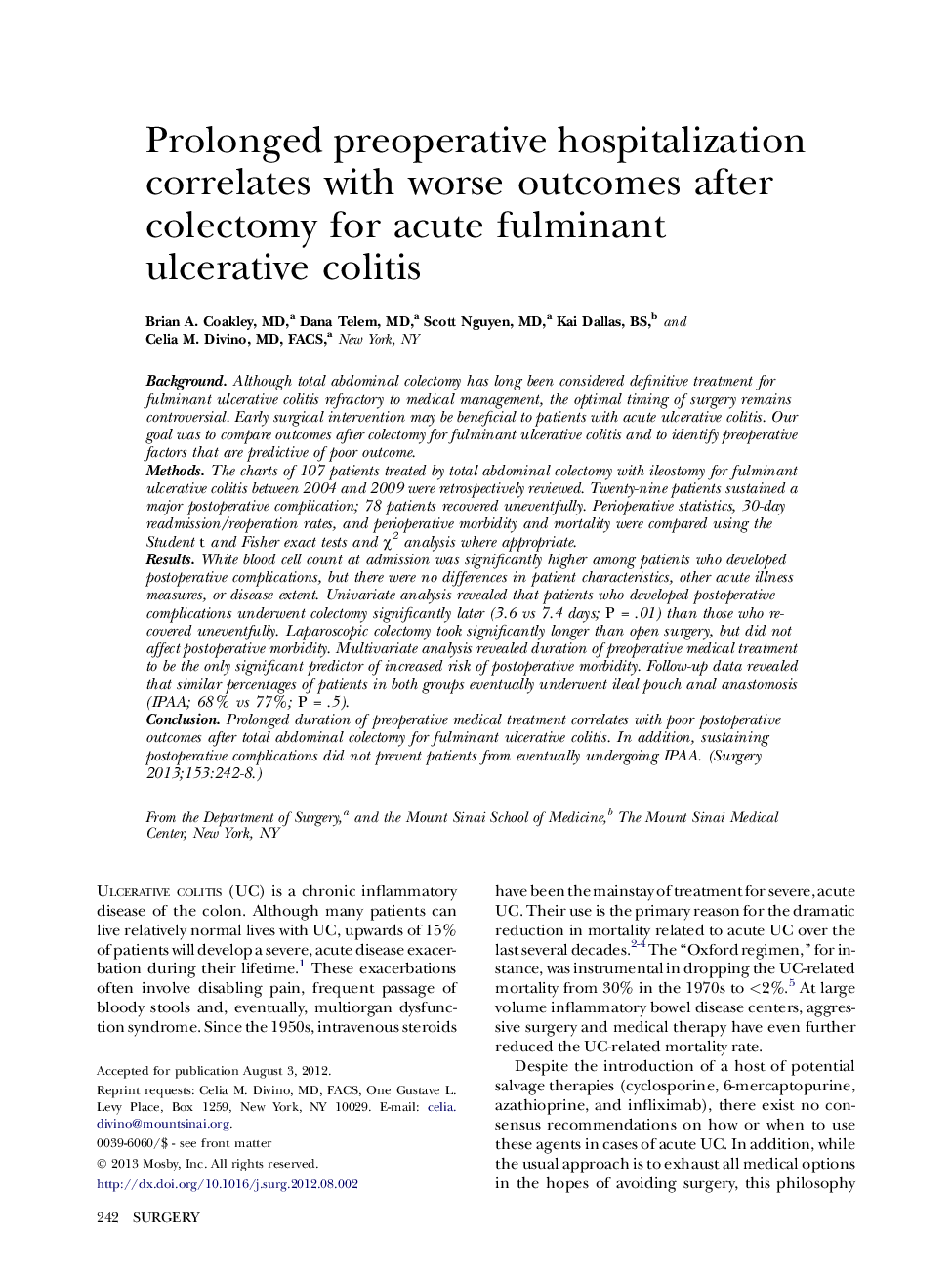| Article ID | Journal | Published Year | Pages | File Type |
|---|---|---|---|---|
| 6255753 | Surgery | 2013 | 7 Pages |
BackgroundAlthough total abdominal colectomy has long been considered definitive treatment for fulminant ulcerative colitis refractory to medical management, the optimal timing of surgery remains controversial. Early surgical intervention may be beneficial to patients with acute ulcerative colitis. Our goal was to compare outcomes after colectomy for fulminant ulcerative colitis and to identify preoperative factors that are predictive of poor outcome.MethodsThe charts of 107 patients treated by total abdominal colectomy with ileostomy for fulminant ulcerative colitis between 2004 and 2009 were retrospectively reviewed. Twenty-nine patients sustained a major postoperative complication; 78 patients recovered uneventfully. Perioperative statistics, 30-day readmission/reoperation rates, and perioperative morbidity and mortality were compared using the Student t and Fisher exact tests and Ï2 analysis where appropriate.ResultsWhite blood cell count at admission was significantly higher among patients who developed postoperative complications, but there were no differences in patient characteristics, other acute illness measures, or disease extent. Univariate analysis revealed that patients who developed postoperative complications underwent colectomy significantly later (3.6 vs 7.4 days; P = .01) than those who recovered uneventfully. Laparoscopic colectomy took significantly longer than open surgery, but did not affect postoperative morbidity. Multivariate analysis revealed duration of preoperative medical treatment to be the only significant predictor of increased risk of postoperative morbidity. Follow-up data revealed that similar percentages of patients in both groups eventually underwent ileal pouch anal anastomosis (IPAA; 68% vs 77%; P = .5).ConclusionProlonged duration of preoperative medical treatment correlates with poor postoperative outcomes after total abdominal colectomy for fulminant ulcerative colitis. In addition, sustaining postoperative complications did not prevent patients from eventually undergoing IPAA.
